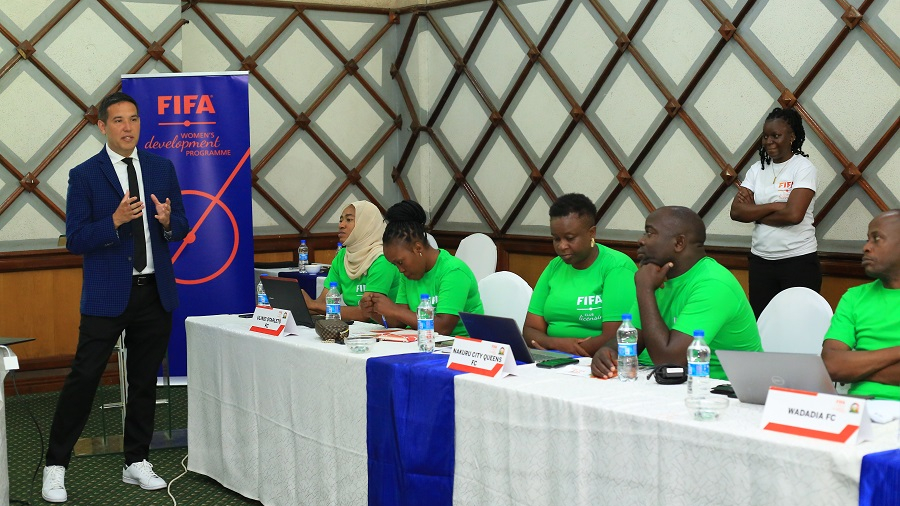Kenyan women teams will implement the newly-adopted FKF Club Licensing Regulations in their respective leagues from the start of the 2024–25 season, a communique read on Thursday 25 January.The new directive, one labeled as a move aimed at improving women’s football, is among the regulatory systems each club participating or engaged in CAF competitions must adhere to and is meant to see to it that they meet specific standards and criteria that encompass various aspects, including sporting, infrastructure, administrative, legal, and financial considerations.Club Licensing sets stage for professional leagues in KenyaThe move is also geared towards bringing professionalism to the Women’s Premier League, aligning it with its male counterparts, who have already adopted it.Among the main focuses of the Club Licensing regulations will be on improving infrastructural requirements.Under that, clubs will now be required to meet infrastructure standards, including stadium availability, training facilities, and office space.This is to ensure women’s football clubs’ facilities are on par with global standards.Another focus will be on the importance of player welfare and youth development, with it a criteria for teams to establish safeguarding policies, youth teams, and medical care – all to foster a positive atmosphere for players on and off the field.Other key focuses as outlined include:1. Revamped personnel and administrative structure for clubs. Key figures such as a general manager, team manager, physiotherapist, head coach, and female coach will be mandatory appointments.2. Financial stability. Clubs will be mandated to have dedicated bank accounts for women’s football transactions. They will also be required to submit audited annual financial statements for transparency and accountability.3. Legitimacy. Club ownership and control will be scrutinized to ensure there exists no conflicting interests. Contracts with professional players must adhere to FIFA regulations, and clubs will be encouraged to forge formal agreements between men’s and women’s football entities.##NAJAVA_MECA_7826128##“As FIFA emphasizes through its confederations, club licensing is an important method for improving club football,” part of FKF’s statement read. “It focuses on crucial aspects, such as club governance and youth football, presenting a holistic strategy that has been accepted globally. “The enactment of these standards demonstrates a commitment to encouraging growth and professionalism in women’s football, promising a revolutionary road ahead.”

